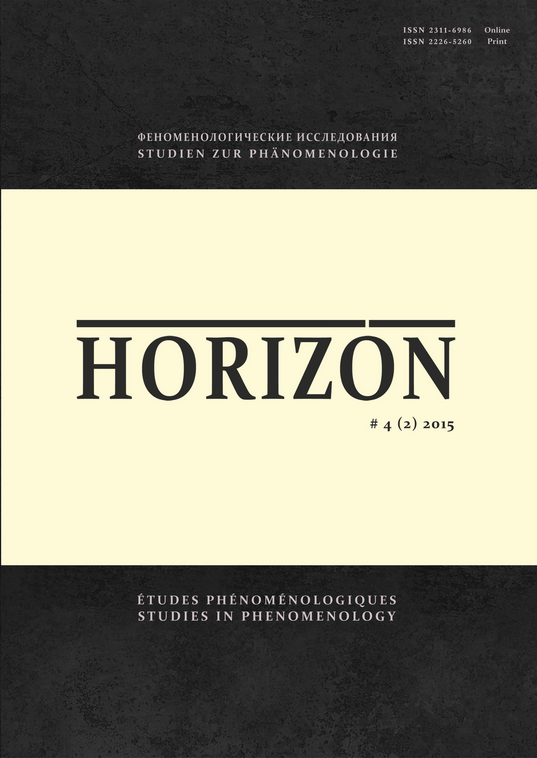HUSSERLS KRITIK AN KANTS TRANSZENDENTALEM IDEALISMUS:
ERÖRTERUNG DES PHÄNOMENOLOGISCHEN IDEALISMUS
HUSSERL’S CRITICISM OF KANT’S TRANSCENDENTAL IDEALISM:
A CLARIFICATION OF PHENOMENOLOGICAL IDEALISM
Author(s): Dominique PradelleSubject(s): German Idealism, Phenomenology
Published by: Издательство Санкт-Петербургского государственного университета
Keywords: Copernican inversion; constitution; intuition; Kant; phenomenology; subjectivity; transcen¬dental idealism
Summary/Abstract: This study focuses on the essential difference between Kant’s and Husserl’s transcendental Idealism.In fact, Husserl describes in the «Cartesian Meditations» his own ontological thesis as a «transcendentalidealism», in which all sorts of entities have to be constituted by an activity of the transcendentalsubjectivity, so that we have to regard pure consciousness as the ontological origin of all entities in theworld. But this study is interested in the two opposite significations of the kantian copernican inversion.On the one hand, the copernican inversion has the same sense as the phenomenological reduction,which implies that Husserl can’t agree with Kant’s presupposition of absolute things in themselves;on the second hand, it involves a relativistic and anthropologistic orientation, so that the aprioristicstructures of given objects are founded on the universal structures of finite subjectivity, on pure formsand faculties of human consciousness. At the opposite, Husserl enounces a methodological prescriptionfor any phenomenological elucidation: it is not allowed to presuppose in phenomenology any givenfaculty or given nature of transcendental subjectivity. This prescription has important consequenceson which this study focuses. First the ontological difference between intuitus originarius and intuitusderivatus, infinite and finite type of intuition, doesn’t have any validity: the difference between factualand rational truths only depends on the essence of the truth itself, and doesn’t have its foundation on theontological difference between creative and receptive sort of intuition. Secondly, this first thesis admitsan immediate application on the level of subjective constitution of objects: the modality in which anobject appears to the subjectivity doesn’t depend on the universal structure of finite subject, but is exclusivelyfounded on the essence of the object itself, so that it is impossible to consider the aprioristicconstitutive structure as a merely subjective structure. Thirdly, in this transcendental phenomenologyeverything has to be constituted by subjectivity: the aprioristic character of the pure forms of sensibilityis not founded on the structure of finite subjectivity, but rather on the essential connection betweensensual material and form; so that it is not allowed to presuppose any facticity of time and space; thepure forms of sensibility have to be constituted by a special type of synthesis that we have to elucidatein opposition to other types of higher levels. The profound signification of Husserl’s anticopernicaninversion is that the field of transcendental phenomenology consists of the essential form of an eidosego, which is «more objective than any objectivity», as Levinas said; and that transcendental phenomenologyis completely dominated by the principium reddendae rationis.
Journal: Horizon. Феноменологические исследования
- Issue Year: 4/2015
- Issue No: 2
- Page Range: 25-53
- Page Count: 29
- Language: German

